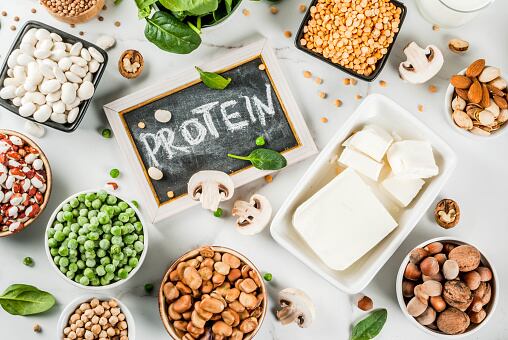Dr Oliver Witard, senior lecturer at the University of Stirling, led a seminar on meat protein versus plant protein and which is the winning formula for muscle growth during Food Matters Live in London this week.
He pointed out that the consensus, based on greenhouse gas production, has been that meat protein is less environmentally friendly than plant proteins.
But he explained that muscle protein synthesis (MPS) is the best measure for the potential of protein and, therefore, studies need to be done to take into account the amount of plants that need to be consumed to stimulate MPS.
He explained: “For example, if you look at the amount of food needed for maximal stimulation of muscle protein synthesis across animal and plant-based proteins, we only need 27g of whey, whereas we would need 2691g of potatoes – the equivalent of 13 potatoes.”
The winning source for muscle growth
Speaking about protein for muscle growth, he explained why animal sources are generally more effective.
“There are three factors that influence the ability to increase muscle mass: protein digestibility, EAA profile and Leucine content.
“Research by Van Vliet et al (2015) has shown that animal protein sources such as milk, beef, eggs and fish, are richer in EAA leucine than plant sources. In fact, dairy has more in than our own human muscle, making it the best source of EAA leucine.”
He added that peptides also influence muscle synthesis and the consensus from multiple studies, is that animal proteins are better at stimulating muscle synthesis.
However, he said it was likely that better sources of plant-based protein yet to be studied.
“But we don’t have a lot of data on a lot of plant based protein sources. I would say that more studies are needed on more plant-based sources as I would say there are some great sources out there.”

